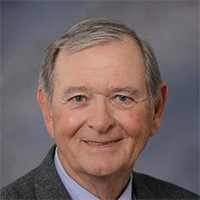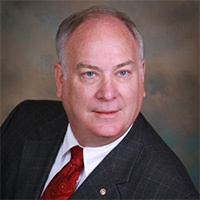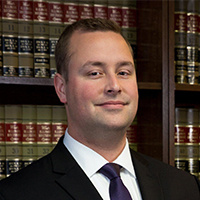Winnebago County, IL Felony Lawyers
Sponsored Law Firm
-
 x
x

Click For More Info:
-
LaPapa Law Group
10704 S Western Ave Chicago, IL 60643» view mapAccident & Injury Law, Criminal Defense Changing Lives One Case At A Time
At LaPapa Law Group, we understand that life doesn’t always go as planned. We have the knowledge and experience needed to competently represent you in court.
800-694-2681
Not enough matches for Winnebago Felony lawyer.
Below are all Winnebago lawyers.
Sponsored Lawyers
1-10 of 49 matches
Divorce & Family Law, Collaborative Law, Wills & Probate
Attorney Keith S. Morse has more than 45 years of experience representing clients in a diverse range of practice areas. Drawing on his various experiences, today he concentrates his practice on helping clients involved in complex divorce and family law matters. His background includes experience as a Special Assistant Attorney General for Illinois, handling complex child/spousal support issues and paternity claims, as well as extensive experience working with situations where substance abuse has been a factor in family problems. Determining child custody and parenting time, dividing marital property fairly, and negotiating child support or spousal support obligations can become highly complex, and the decisions made in a divorce proceeding can have a lasting impact on the future of both spouses.
(more)Divorce & Family Law, Estate, Real Estate
Attorney Robert (Bob) Canfield was born and raised in Rockford, IL. He graduated from Guilford High School in 1965. After joining the Army in February of 1968, he went on to Army flight school and graduated 2nd in his flight class. He spent a year in Vietnam flying CH-47 Chinook helicopters for the 101st Airborne Division and then returned to Fort Rucker, Alabama, as an Instrument Flight Instructor. Following active Duty, he attended the University of Minnesota where he received his BA in psychology in 1976 and his Law degree in 1978. After taking and passing both the Illinois and Minnesota bar exam in the fall of 1978, he settled back in Rockford to practice law. Professionally, he started his law career working with an insurance defense firm. After a couple of years, he started his own practice and has spent decades practicing law on his own or in partnership with others. He currently is the owner and senior attorney with his firm, Canfield & McKenna. He maintains a general practice with an emphasis in the areas of Family Law, Real Estate Law, Probate Law, Wills and Trusts and Business/Corporation Law. He is also a Court Certified Mediator for the Family Court. In addition to his legal training and experience, he has enjoyed giving back to his community, both in military and civic service. After leaving active duty, he joined the Minnesota National Guard and, later, the Wisconsin National Guard, where he flew Helicopters until he retired after almost 30 years of military service. He retired with over 4000 flight hours and as an Army Master Aviator. While in the military, he had the privilege of flying Bob Hope, H. Ross Perot, Vice President Hubert Humphry and Vice President Walter Mondale, among others. Bob is very active in his community. He is past president of Riverfront Museum Park, Rockford Dance Company, and Rockford Rotary; past chair of the Rockford Fair Housing Board; and past commander of Rockford Sail and Power Squadron and District 20 of the United States Power Squadrons (America’s Boating Club). He is active in his church, Second/First and formerly Second Congregational Church, where he is former Chair of the Board of Deacons and Board of Trustees, and is currently the chair of the Discernment and Vision team. He has also taught Law and Economics at Rock Valley College. He has served and still serves on many other boards and committees. He is currently President of Rockford Day Nursery, and teaches the public boating class at Rock Valley College. An avid boater, he has sailed and boated in many countries, including Greece, Thailand, France, Canada and has boated all the Great Lakes and the Mississippi River. He is a graduate of The Nautical School of Maritime Licensing and has earned multiple certificates from the American Sailing Association, and he currently boats out of his home port of Racine, Wisconsin. As a retired military officer, he emphasizes integrity, compassion, preparation and honesty when dealing with clients. He is a highly experienced lawyer and is well qualified to handle your case.
(more)Accident & Injury, Divorce & Family Law, Estate, Bankruptcy & Debt, Business
Thomas was born and raised in Cherry Valley, Illinois. He attended Western Illinois University where he received his Bachelor’s in Law Enforcement and Justice Administration. Thomas went on to attend law school at Southern Illinois University School of Law where he graduated Magna Cum Laude. During law school, Thomas was on the Board of Editors for the Journal of Legal Medicine and the President of the Healthcare Transactions Team. After graduating law school, Thomas began his legal career as an Assistant State’s Attorney with the Winnebago County State’s Attorney’s Office. Thomas joined the firm in 2017. He is currently a member of the Winnebago County Bar Association and the Illinois State Bar Association.
(more)Accident & Injury, Medical Malpractice, Wrongful Death, Personal Injury, Car Accident
Since joining Schwartz Jambois in 1997, Craig Mannarino has consistently obtained significant jury verdicts and settlements for his clients in lawsuits involving medical malpractice, automobile negligence, pharmaceutical mass torts, and other catastrophic injury and wrongful death cases. His record of success includes over $50 million in jury verdicts to date. He has obtained large jury verdicts for his clients in counties throughout the state of Illinois. Additionally, Craig has obtained a number of sizable settlements throughout his career. In 2015, Craig was one of a small group of lawyers leading the consolidated Cook County, Illinois pharmaceutical litigation involving the diabetes drug Actos® which resolved for $2.4 billion, one of the largest pharmaceutical settlements ever. To schedule a consultation with Attorney Mannarino, visit his website, or call 815-215-7561.
(more)Accident & Injury, Medical Malpractice, Nursing Home, Car Accident, Wrongful Death
Amanda Brasfield is a highly experienced trial attorney with a focus on personal injury litigation. From medical malpractice to construction accident negligence, Amanda has obtained a number of multi-million dollar settlements and verdicts. Amanda has worked on dozens of complicated medical malpractice cases involving birth injuries, cerebral palsy, surgical mishaps, delayed diagnosis of cancer, and missed diagnosis of conditions such as heart attack, stroke, infection, sepsis, hemorrhage, meningitis, abdominal and thoracic aortic aneurysm (AAA and TAA), and shock. From depositions through trial, Amanda works tirelessly to uncover what proper medical practices were not followed and what steps could have been taken to prevent injuries and deaths related to medical care. In each of her medical malpractice cases, Amanda works with dedication and tenacity to achieve justice for those who have been harmed by the medical providers in which they placed their trust. To schedule a consultation with Attorney Brasfield, visit her website, or call 815-215-7561.
(more)Accident & Injury, Mass Torts
Attorney Jason F. Abraham began his career with Hupy and Abraham as a personal injury lawyer in Milwaukee in 1993 and was promoted to shareholder in 1999. Attorney Abraham's proficiency in handling personal injury matters attracts clientele from across the nation. He has settled or tried personal injury cases with a combined value of approximately $400 million and resolved many cases for over one million dollars each. His expertise in personal injury matters has granted him lecturing opportunities in numerous states across the nation.
(more)


 Gregory R. LaPapa Chicago, IL
Gregory R. LaPapa Chicago, IL Practice AreasExpertise
Practice AreasExpertise






